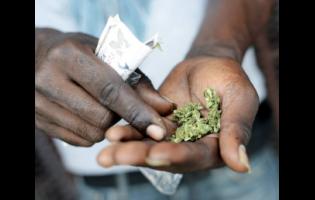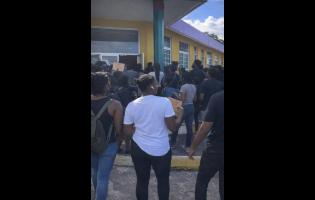JET wants more action to stop illegal burning
Theresa Rodriguez-Moodie, CEO of the Jamaica Environment Trust (JET), is sounding the alarm on illegal burning, highlighting its dangers, as well as the inefficiencies in enforcement that allow the issue to persist.
"Burning is bad for the environment, it is illegal, and it is bad for our health. But when you start burning things like plastics or hazardous materials, it causes even more negative impacts. I don't think people fully understand and appreciate just how dangerous it is," she said.
Under the Public Health (Nuisance) Regulations, offenders can face a fine of $500,000 or six months in prison. But, according to Rodriguez-Moodie, the penalties alone are not enough to deter offenders.
"A lot of people burn because they say they don't have regular garbage collection, but that's still not acceptable. It's something we all have to take more seriously," she added. The CEO said that despite the clear environmental and health hazards, addressing complaints about illegal burning often falls through the cracks due to overlapping responsibilities among agencies.
"When we get complaints, it's hard to get action. You have so many organisations involved -- NEPA, municipal authorities, the fire brigade -- and when you have so many entities with responsibility in some shape or form, a lot of times, nothing gets done," Rodriguez-Moodie explained.
"NEPA often struggles with gathering sufficient evidence. When they're called, they may not see the burning taking place or it's hard to link it to a specific person. That monitoring and enforcement aspect has to improve," she said.
Rodriguez-Moodie suggested that streamlining the complaints and enforcement process could lead to better results.
"We need to make the system more efficient. Right now, it's too disjointed. And even within organisations, some don't fully understand their responsibilities under the law," she said.
"I don't think the fine or imprisonment is sufficient as a deterrent, but the bigger issue is that very few people actually get prosecuted," she noted. "Even if you increase the fines, it won't matter unless you improve the entire process -- monitoring, identifying offenders, and enforcing penalties. The fines are only one piece of the puzzle."
Asked whether Jamaica could implement the same level of enforcement that is seen in First-World countries, Rodriguez-Moodie expressed cautious optimism.
"It comes back to enforcement and monitoring. Anything we take seriously, we can make substantial changes, but we have to treat illegal burning as a priority," she said. "The public needs to understand the law, and enforcement agencies need to take action. If we do that, I believe we can see the same improvements as in other places."
- T.P.





































